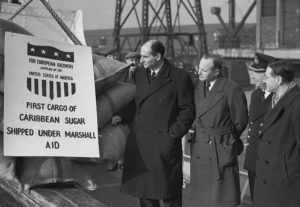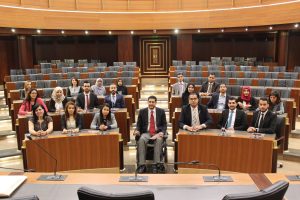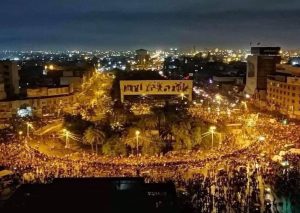PNN – After the military occupation of the countries of the West Asian region, the United States has attempted to educate a new nation that believes in Western values by using non-governmental educational organizations such as the Global Education Organization, business accelerators, schools, and universities.
According to the report of Pakistan News Network, “nation-building” is a gradual process that has taken shape in a new and influential way after World War II, especially with the presence of great powers, such as the United States and its allies. This process means creating a common national identity, which is mainly based on common language, culture, history, and values.
Read more:
Arab students: victims of targeted discrimination in the Israeli education system
This process is usually more important in countries with ethnic and cultural diversity. Nation-building encompasses a set of tools and policies, such as educational and media policies, and economic policies. The process of “nation-building” leads to the formation of national identity, social unity, and strengthening political cohesion in a country.
After World War II, the Americans ostensibly sought to achieve their main goals within the framework of nation-building among target countries by promoting democracy and human rights. To this end, the United States encouraged and encouraged countries to actively participate in the nation-building process through levers such as economic and military aid.
The Marshall Plan was one of the most important of these programs, helping to rebuild European countries and becoming a model for economic aid to other countries. In these countries, civil and governmental institutions that helped build nations developed.

For example, the United States had defined supporting political parties and non-governmental organizations, holding free elections, reforming the education system, and even equipping and organizing the country’s security forces and police as among the steps it would take to achieve its goals.

However, if economic, cultural, and social efforts did not yield the desired results for America, military and security measures would be put on the agenda to pave the way for achieving the intended goals. The examples of intervention in Korea, Vietnam, Afghanistan, and especially Iraq have been some clear examples of the use of military and security measures to initiate nation-building in these countries. After entering these countries, the United States tried to maintain its influence by using development and cultural programs and supporting non-governmental and civil institutions, education, and the like that strengthened nation-building.

The country also seeks to train elites at various political, economic, and socio-cultural levels who can shape Iraq’s future in line with American interests or, as in the 2019 Iraqi protests, be leaders and social activists to create street riots and express disgust with the axis of resistance.

Accordingly, it is necessary for Iran to take serious economic and cultural measures in the field of youth and adolescents to counter the nation-building policies of the United States in countries such as Iraq. Neglecting this area will prevent the Islamic Republic of Iran from playing a serious role in protecting the interests of the Muslim Ummah in the future of Iraq, in the absence of an appropriate force committed to Islamic values.

